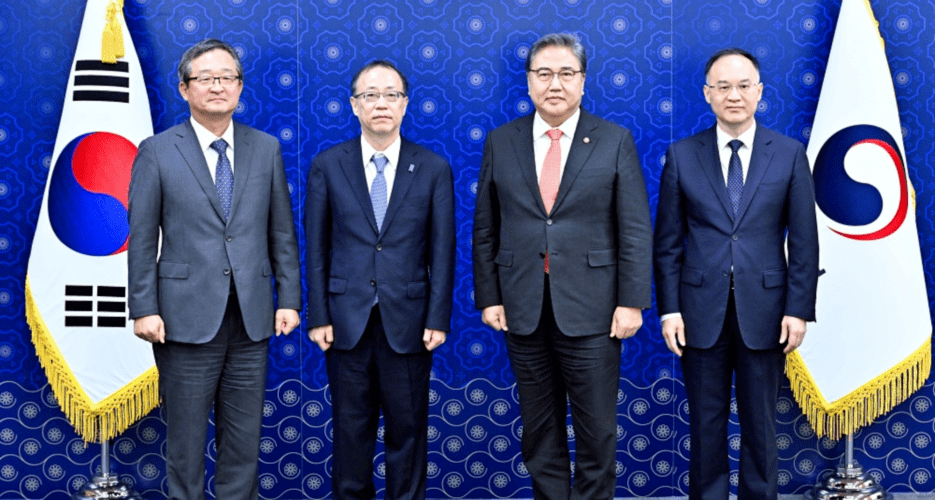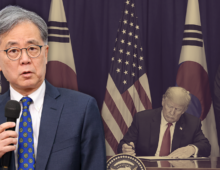As the ROK and Japan move closer to the U.S., Beijing seeks to recalibrate its strategies for influence in East Asia
The diplomatic stage witnessed a crucial re-engagement on Sept. 26 as representatives from China, Japan and the ROK agreed to reconvene their trilateral summit for the first time since 2019. Amid China’s mounting criticisms toward ROK President Yoon Suk-yeol and its decision to ban Japanese seafood in light of the Fukushima nuclear wastewater release, this renewed dialogue signals a marked change in Beijing’s diplomatic stance.
However, the geopolitical landscape presents challenges, with rising regional tensions and shifting allegiances, making the outcomes of this trilateral engagement highly consequential for the balance of power in East Asia.
The diplomatic stage witnessed a crucial re-engagement on Sept. 26 as representatives from China, Japan and the ROK agreed to reconvene their trilateral summit for the first time since 2019. Amid China’s mounting criticisms toward ROK President Yoon Suk-yeol and its decision to ban Japanese seafood in light of the Fukushima nuclear wastewater release, this renewed dialogue signals a marked change in Beijing’s diplomatic stance.
However, the geopolitical landscape presents challenges, with rising regional tensions and shifting allegiances, making the outcomes of this trilateral engagement highly consequential for the balance of power in East Asia.
Get your
KoreaPro
subscription today!
Unlock article access by becoming a KOREA PRO member today!
Unlock your access
to all our features.
Standard Annual plan includes:
-
Receive full archive access, full suite of newsletter products
-
Month in Review via email and the KOREA PRO website
-
Exclusive invites and priority access to member events
-
One year of access to NK News and NK News podcast
There are three plans available:
Lite, Standard and
Premium.
Explore which would be
the best one for you.
Explore membership options
© Korea Risk Group. All rights reserved.
No part of this content may be reproduced, distributed, or used for
commercial purposes without prior written permission from Korea Risk
Group.












